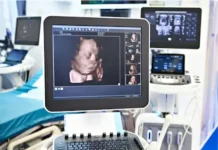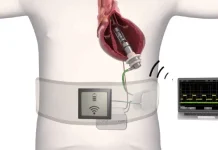WeWALK, the company behind products for visually impaired people, has secured funding for a £1.7 million Designed for Ageing project through UK Research and Innovation (UKRI).
Partnering with Imperial College London and the Royal National Institute of Blind People (RNIB), the project aims to develop a new computer vision-aided solution to help people facing mobility challenges, from catching the right bus to navigating the busiest streets.
WeWALK’s software-enabled products have already transformed mobility for people with visual impairments. The company’s Smart Cane uses a front-mounted ultrasonic sensor that detects obstacles and warns users with vibration feedback. The Smart Cane can also be paired with WeWALK’s smartphone app to give users accessible voice-guided navigation.
The Designed for Ageing funding is delivered on behalf of UKRI as part of the Healthy Ageing Challenge. Led by Jean Marc Feghali, WeWALK’s head of R&D, the WeWALK team joins forces with Imperial College London and the RNIB and will use the funds to focus on promoting the widespread use of computer vision-aided navigation, including environmental mapping and situational awareness. The project team aims to build on existing WeWALK architecture while also developing new technology that is accessible and easier to use for key target groups. The project has the potential to enhance the lives of up to 253 million visually impaired and 700 million older people globally by improving access to the spaces where we live, work, and play.
WeWALK co-founder Kürşat Ceylan said: “We are delighted and excited to be embarking on this new project with our partners, thanks to the support of UKRI.
“Computer vision has limitless potential in solving mobility problems experienced by visually impaired and older people, from identifying landmarks to navigating complex spaces. Our specialist knowledge and that of our partners, which have an in-depth understanding of overcoming the barriers to using mobility technology, provide an ideal platform in developing new and effective solutions.”
Professor Washington Ochieng, head of the Department of Civil and Environmental Engineering at Imperial College London, said: “The Design for Ageing Project will enable us to turn the dream of a seamless fully automated navigation system into a reality and transform the quality of life for visually impaired and elderly people.
“Throughout this ground-breaking project, we will be using some of the most sophisticated sensing and analytics technology including AI and machine learning to deliver on our ambitions.”
Robin Spinks, principal manager of digital accessibility at RNIB, said: “We’re delighted to be working with WeWALK and Imperial College London on this exciting project which gives us an immense opportunity to enhance navigation for people with sight loss.
“We will be heavily involved in user testing working with a large group of blind and partially sighted people to harness their day to day lived experience. We will also be working with our user experience team to develop a game-changing product that will improve the lives of visually impaired individuals worldwide.”
George MacGinnis, Healthy Ageing challenge director at UK Research and Innovation, said: “Many of us are living for longer and want to make the most of the opportunities in later life, which can include continuing to work and volunteer. Despite this, the market for products and services which genuinely meet the needs of older people is underdeveloped.
“Innovators need a better understanding of the rich and varied lives people lead as they age, moving away from a utilitarian view of providing only what they think older people need. That is why a commitment to inclusive design is so important it provides an understanding of how people want to live their lives and what they would most like, to make the most of their time.”






